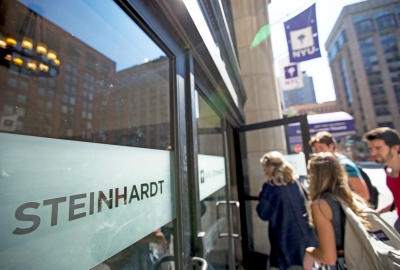This course builds on material presented in Theory & Practice II: Popular Music.
Students explore advanced topics in harmony, rhythmic function, metric dissonance, formal function and ambiguity in song form, tuning practices, vocal and instrumental timbre, texture, recording techniques and sampling, music video analysis, and discussions of identity in popular song. Popular music, defined broadly, includes pop, rock, hip hop, rap, metal, folk, EDM, country, and other genres. Students engage with topics through assigned reading and listening, discussions, and projects.
Course #
MPATC-UE 1335
Credits
2
Department
Music and Performing Arts Professions


